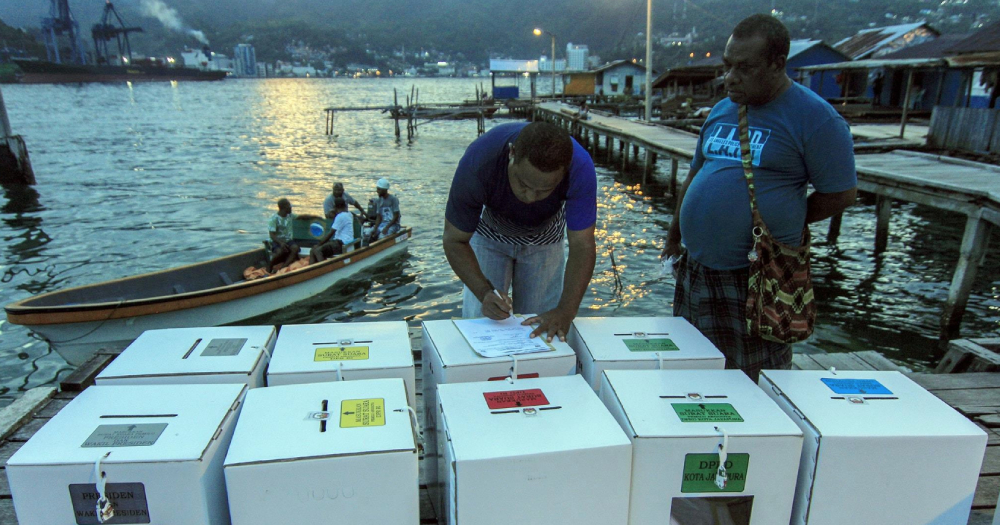Eight pollsters came together on Saturday, April 20, to defend their quick count method.
style="display:block; text-align:center;" data-ad-layout="in-article" data-ad-format="fluid" data-ad-client="ca-pub-8151337340296717" data-ad-slot="5584281553">
This was after they were accused of being biased towards Indonesian President Joko Widodo, popularly known as "Jokowi".
First time pollsters defending quick count results
According to The Jakarta Post, they invited members of the media and the public to a press briefing in Jakarta, in order to examine their methodology and raw data from polling stations they surveyed.
The eight pollsters were part of the Indonesian Association for Public Opinion Surveys (Persepi).
This is the first time they have organised such an event.
Philips J. Vermonte, the head of Persepi and executive director of the Centre for Strategic and International Studies (CSIS), said the press briefing was held in response to attempts made to delegitimise the scientific method used in quick counts.
"Through the data expose, you can see how we did the quick counts," he said. "We went through the process transparently."
style="display:block; text-align:center;" data-ad-layout="in-article" data-ad-format="fluid" data-ad-client="ca-pub-8151337340296717" data-ad-slot="5584281553">
Quick count results point to Jokowi win
The press briefing came a day after presidential candidate Prabowo Subianto accused the pollsters of lying, even saying they should "move to the Antarctic to spread lies to the penguins".
The quick count results, released two hours after polls closed at 1pm Jakarta time (2pm Singapore time) on April 17 have shown that the incumbent Widodo is most likely to remain as Indonesian president for the next five years.
According to a quick count conducted by the CSIS and Cyrus Network, the Widodo-Amin pair won 55.8 percent of the vote as compared to 44.2 percent for the Prabowo and Sandiaga Uno pair.
Prabowo called pollsters "liars"
Prabowo has countered the quick count results with results conducted by his own team, which claimed he won by 62 percent.
He previously declared that he was the president no fewer than three times in the span of 24 hours, despite the General Elections Commission (KPU) asking both candidates to refrain from declaring victory before the official results are in.
Quick counts are supposedly reliable
Quick counts are supposedly reliable -- they have predicted most election results correctly in the past since Indonesia held its first direct presidential election in 2004.
They are different from exit polls.
While exit polls depend on the honesty of respondents in revealing who they voted for, quick counts are conducted by randomly sampling data from polling stations across the country.
This minimises biases.
Public can access the data
The data released by CSIS and Cyrus Network is also available to the public.
It is accessible here using "view96" as a username and "VW7407" as its password.
This is how it looks like:
 Screenshot via CSIS and Cyrus Network
Screenshot via CSIS and Cyrus Network
According to The Jakarta Post, visitors to the site can trace C1 forms, which are the voting tallies from individual polling stations, obtained by the pollsters from 2,002 polling stations in 34 provinces.
The study involved at least a million voters, and has a trust level of 95 percent and a margin of error of 1 percent.
Vermonte also called for those who dispute their quick count results to release their own data to the public.
Related story:
Top image via Joko Widodo's Facebook page
If you like what you read, follow us on Facebook, Instagram, Twitter and Telegram to get the latest updates.
